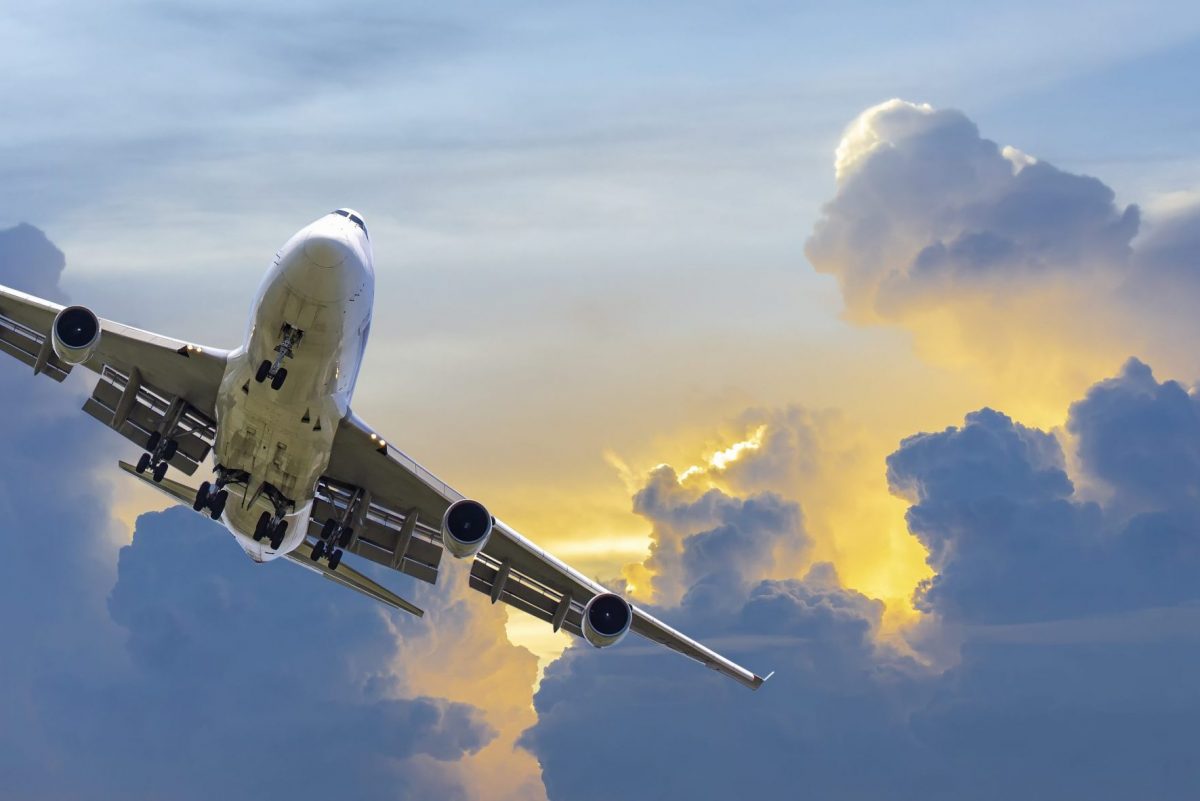Booking Claims It Beats Airbnb With 5 Million Alternative Accommodations Listings
Skift Take
Booking Holdings has tallied and publicized its alternative accommodations listings for the first time, and claims its biggest brand, Booking.com, is the leader from a supply perspective with more than 5 million listings of homes, apartments, and other unique lodgings, topping Airbnb.
Thus the inventory arms race is on. An Airbnb source said the company now claims 4.85 million listings, up from the previously disclosed 4.5 million at the end of 2017, and the company expects to top 5 million listings by the end of June.
The compare and contrast game between publicly traded Booking Holdings and privately held Airbnb has been an apples to oranges contest until now because Booking had previously only released its property numbers while Airbnb cited its listings roster. But now, if both companies' numbers are to be believed, the tallies are easier to measure.
You can consider Booking.com ahead in the listings statistical race — more than 5 million for Booking versus 4.85 million for Airbnb, but Airbnb's roster includes hotels and Booking's doesn't. When including hotels and nontraditional listings, Booking says it has 27 million. Airbnb has recently made a big push to add hotels and go head-to-head against Booking.com.
Booking, in its announcement Tuesday, cited what it characterizes as "5 million reported listings" based on the number of units that owners or property managers disclose as being distributed through the online travel agency.
In a Securities and Exchange Commission filing Tuesday, noted: "Reported Listings refers to the total number of individually bookable units at that property as reported to us by the property, whether or not those units are all available for booking on Booking.com at a given point in time. For example, a hotel with 100 individually bookable rooms would represent one property and 100 Reported Listings (or rooms potentially available for booking), while a 5-bedroom vacation home that is bookable as a single unit would represent one property and one Reported Listing."
Booking.com has long had apartment hotels, vacation rentals, and other nontraditional accommodations, and has seen its roster grow 27 percent year-over-year. The company feels its footprint in alternative accommodations hasn't been adequately portrayed in the press given all the publicity that Airbnb gets.
The Airbnb source, though, claimed "the number of listings in our global network has increased 36 percent over the past year and is only accelerating." So Airbnb maintains that its listings ranks are growing at a faster clip than Booking's.
Not Being Appreciated
Booking Holdings CEO Glenn Fogel told Skift that the company decided to calculate and publicize its number of alternative accommodations listings for the first time — as opposed to merely reporting a property count — because it wanted to show the true scale of its business.
Fogel said he's observed anecdotally that many people, particularly in the United States, do not appreciate the scope of the lodging offerings available on Booking.com and its sister companies. That is one of the reasons the parent company recently changed its name from the Priceline Group to Booking Holdings, reflecting the strength of its largest subsidiary, Amsterdam-based Booking.com.
So does this make Booking the leader in alternative accommodations, beating out Airbnb, which many people view as the leader in the sector?
Fogel is not making that claim.
“It is so hard to know how to measure this," he said. "Certainly, we believe that we are the leader in reported listings. That being said, though, I don’t know how you want to measure it, but some of the companies in this industry don’t report any numbers. So who knows?”
More Than a Listings Race
As Fogel has acknowledged in the past when speaking of competitors trying to catch his company in the hotel-booking race, adding supply is only one part of the equation. Companies must have marketing and advertising skills — Booking spent more than $4 billion last year just on digital marketing — and then be able to convert lookers into bookers once they arrive on your website. Both companies would admit, meanwhile, that Airbnb only attracts a fraction of Booking.com's site traffic.
Fogel points to Booking Holdings' performance in commenting that he's pleased with the company's competitive position. The company's gross travel bookings increased 19 percent in 2017 to $81.2 billion while net income grew 9.6 percent to $2.34 billion.
He's upbeat about the fact that the company's 27 percent year-over-year growth in alternative accommodations is "definitely growing faster than the traditional hotel, motel, and resort area."
The Airbnb source argues that Airbnb has an advantage in its face-off with Booking.com because 3.5 million of Airbnb's listings, or 72 percent, are exclusive in that they can only be booked on Airbnb.
Fogel said he isn't a fan of exclusive listings as a way to win in the sector.
“We don’t go out asking property owners to give us exclusives," he said. "We believe in the power of our demand platform to be able to deliver for hoteliers, property owners, anyone. Put it on our site and we’ll give you demand. Some companies go around asking for exclusivity. I wonder why they would do that if they were able to deliver on bringing robust demand to partners."
A Host of Issues
Asked to comment on Airbnb's competition with Booking, Airbnb spokesman Nick Papas said, "Airbnb is growing faster and spending less because we have a community model as opposed to Booking's commodity model. Airbnb hosts are part of a community and treated as partners while Booking treats hosts as commodities."
Regarding marketing spend, one of the reasons Booking has been able to become a company with a $98.9 billion market cap is that it has found a way to spend $4 billion on digital marketing in one year, and to do it relatively efficiently so that it can plow more money back into marketing. Investors, however, are concerned about the spending blitz.
While Airbnb provides its hosts with certain guarantees and offers them insurance, as well as photography services for their units, Fogel notes that the company has products in the pipeline to address a range of services in the nontraditional accommodation sector. It is behind the curve in terms of Airbnb's offerings to hosts.
"We are definitely looking at all sorts of things where we can add value," Fogel said.
A New Hire and a Marketing Pivot
Booking Holdings' heightened competition with Airbnb comes as Booking hired Olivier Gremillon as vice president of Booking Home to lead its homes and apartments strategy. Based in Booking.com's Amsterdam headquarters, Gremillion had been Airbnb's director of global strategy through the end of last year.
Is the hire a difference-maker? Fogel characterized it as "a proof point."
In Booking Holdings' announcement about its 5 million listings Tuesday, Gremillion stated, "We're definitely proud of this milestone, and will continue to strengthen our leadership position in this space. No matter what type of experience our customers want, we aim to connect them with the unique stay that's just right for them."
Booking.com is starting to tilt its marketing toward inclusion of an alternative accommodations message (see video embedded below).
The accelerated emphasis on alternative accommodations comes after years of taking what some might describe as a conservative stance toward the sector under previous CEOs Jeffery Boyd and Darren Huston. Boyd is still chairman of the company.
Fogel doesn't view it that way, nor does he think the changes required any kind of cultural shift at the company. He said it was a question of priorities, and where to emphasize putting resources in recent years when other parts of the company were "growing at 200 miles an hour" and "bringing greater returns."
In the Crosshairs?
Now that Booking Holdings is emphasizing its alternative accommodations footprint, regulators will take an even closer look as some industry observers point to the fact that a large number of listings for Expedia, Booking, and Airbnb may flout local laws.
When asked about the issue, Fogel said, "I would say that we are always, always trying to make sure ... that we are operating legally and properly wherever we are."
He noted that regulations vary widely around the world, adding "we try to follow every single one of them. Our goal is not to break the law. Our goal is to obey the law."
But asked whether Booking is doing its part to ensure that hosts in places such as Chicago and New Orleans were registering with city authorities, Fogel acknowledged, "I have not kept up with every regulation and every jurisdiction."
He said that he's frustrated that in Barcelona, Booking is displaying license information on hosts' listings but other companies aren't complying.
"We are always working within the regulatory framework," Fogel said. "When people improperly list when they aren't supposed to, then we do what we can do to make sure that doesn't happen."
Following is a Booking.com advertisement that incorporates an alternative accommodations message.
[youtube https://www.youtube.com/watch?v=k445QuZfp5w]





